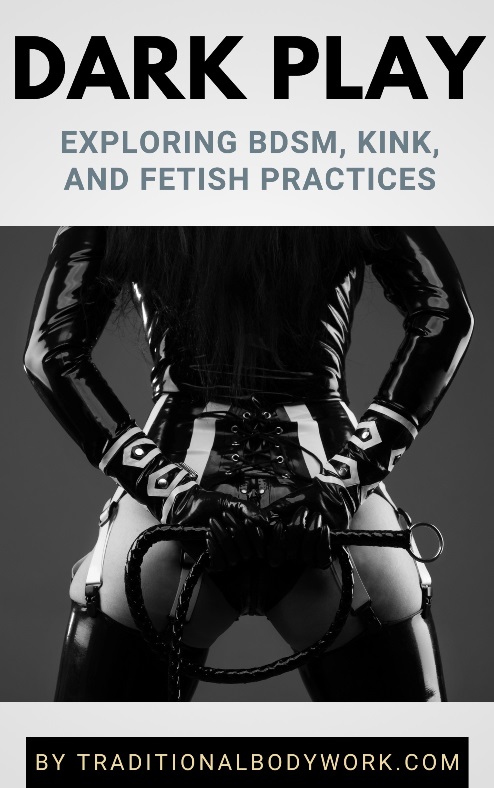
The term kink used in a sexual sense refers to a broad variety of sexual practices, behavior, concepts, fantasies, and/or preferences that are considered unconventional, that is, fall outside the spectrum of what’s generally thought to be “sexually normal.”

Having said that, it’s important to realize that what is kinky for one person may not be kinky for another. In addition, what’s kink and what not is likewise culturally defined while also shifting in time, that is, certain sexual behavior can be entirely normal today, but wasn’t normal (meaning it was kinky) a hundred years ago.
In any case, some examples of sexual realms, themes, or domains that are considered kinky include BDSM (bondage, discipline, dominance, submission, sadism, and masochism), Roleplay, Cosplay, fetishisms, exhibitionism, voyeurism, body modification, Impact Play, and Sensory Play.
Now, conscious kink refers to kinky practices that are carried out deliberately, intentionally, and with full awareness of the acts, and moreover — with a certain attitude, in a certain way, and with a certain aim.

First of all it typically means that “kinky acts” are done safely, responsibly, mindfully, through clear and honest communication, respectfully, and with full consent of the individuals involved.
In addition, consciously performed sexual kinks can have one or more specific goals, which may include things like exploring other parts of one’s sexuality, fun and entertainment, breaking routines, heightening sexual arousal, deepening intimacy and trust between individuals, exploring power dynamics, and/or being a form of therapy to attain emotional and trauma release.
Conscious kink can be practiced between couples or sex partners, but it’s likewise increasingly common to engage in conscious kink (as a couple, partners, or individually) under guidance of a so-called kink professional (aka kink-aware professional or kink-affirming professional).

Kink professionals are typically trained and certified sexological bodyworkers, somatic sex educators, somatic sex coaches, kink therapists, and kink conscious or BDSM specialists (in the latter case, think of a bondage specialist or a professional Dominatrix).
The advantages of practicing kink together with a professional can include profiting from the practical and technical expertise of the professional, a gradual step-by-step approach tailored to individual needs, clear communication, learning about a variety of kink activities, engaging in safe, non-judgmental and consensual practices, gaining a deeper understanding of the emotional and mental sides of one’s kinks, and trauma-informed guidance.

















